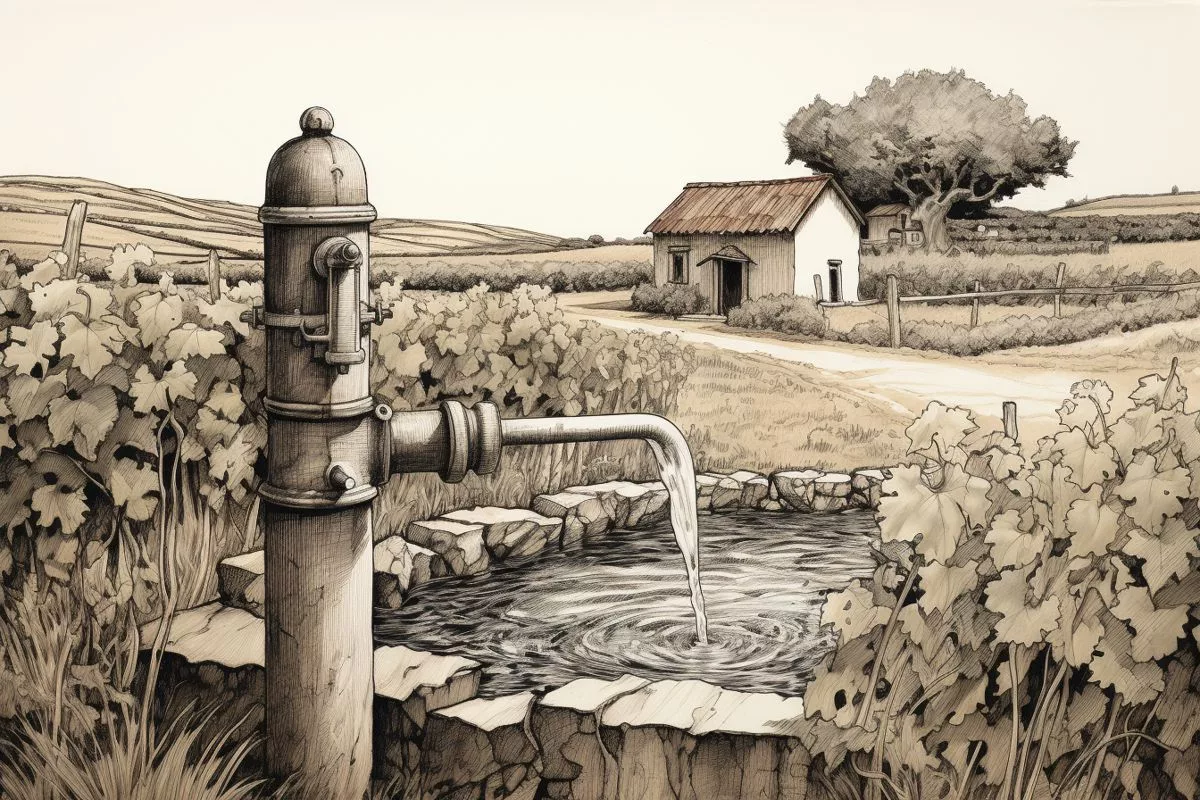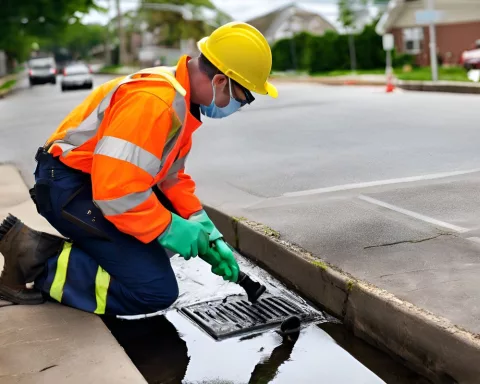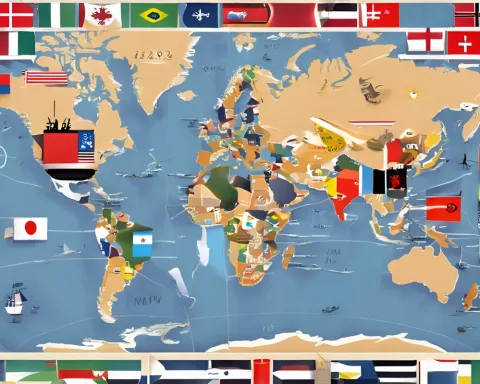Supporting disadvantaged farmers in the Northern Cape requires collaboration between local municipalities, the government, and agricultural experts. The Department of Water and Sanitation’s Water Allocation Reform program aims to distribute water resources equitably, but inadequate service delivery and skills hinder HDI projects’ success. To address these challenges, targeted skills development programs and better communication channels can be introduced, and a revised Memorandum of Understanding can help improve outcomes for HDI farmers. By working together, a brighter future can be built for these farmers and their communities.
How can disadvantaged farmers in the Northern Cape be supported?
Disadvantaged farmers in the Northern Cape can be supported through collaboration between local municipalities and the government. The Department of Water and Sanitation’s Water Allocation Reform program aims to distribute water resources equitably, but inadequate service delivery and skills hinder HDI projects’ success. To address these challenges, targeted skills development programs and better communication channels can be introduced. A revised Memorandum of Understanding between the Department of Water and Sanitation and the Northern Cape Department of Agriculture, Environmental Affairs, Rural Development, and Land Reform can help improve outcomes for HDI farmers.
Judith Tshabalala, Deputy Minister of the Department of Water and Sanitation, called on the Northern Cape Provincial government and the Dawid Kruiper and Kai! Garib Municipalities to work together and provide assistance to emerging vineyard farmers in Kakamas and Upington, particularly those who are historically disadvantaged. Established vineyard farmers in the area face difficulties due to insufficient service delivery. Five Historically Disadvantaged Individual (HDI) projects in Kakamas produce grapes, with 936 hectares of water use entitlements allocated to Black Economic Empowerment (BEE) Farms.
The Department of Water and Sanitation, responsible for overseeing national water resources, supports local farmers and HDIs through the Water Allocation Reform (WAR) program, aimed at equitable distribution of the nation’s water resources. Despite this support, many HDI projects have failed because of inadequate skills and service delivery challenges from local municipalities. Three of the HDI projects, with 261 hectares of water use rights, were productive when purchased by the government and transferred to the new HDI owners. Two of these projects produced export table grapes, while the third supplied grapes to local wineries.
Sadly, all projects have ground to a halt after the transfers, and there is no production at any of the HDI projects currently. Tshabalala urged the provincial government and local municipalities to cooperate closely to ensure the success of HDI projects, crucial for local economic growth in the area and as part of the Government’s Economic Recovery Plan to build a resilient, inclusive, and sustainable economy.
Addressing Challenges Through Collaboration
Xolani Zwane, Deputy Director-General of the Department, responsible for compliance, monitoring, and evaluation, announced that the Department is developing a revised Memorandum of Understanding (MoU) with the Northern Cape Department of Agriculture, Environmental Affairs, Rural Development, and Land Reform. The MoU aims to reevaluate the water pricing strategy for HDI projects in the area and strengthen relations between the two Departments.
The struggles faced by historically disadvantaged farmers in the Northern Cape reflect broader issues impacting agriculture in South Africa. The lack of adequate support, in terms of skills development and service delivery, has impeded the growth and success of HDI projects. While the Department of Water and Sanitation’s WAR program is a laudable initiative, the experiences of the HDI farmers show that additional efforts are necessary to ensure the success of these projects.
Developing Skills and Streamlining Communication
One potential solution to assist these farmers in overcoming their challenges is the introduction of targeted skills development programs. These programs could offer training in essential agricultural practices, focusing on the specific crops and regions where the farmers work. Furthermore, ongoing support and mentorship from experienced farmers and industry experts could be invaluable in helping HDI farmers overcome the challenges they face.
Another strategy for addressing the service delivery challenges faced by HDI farmers is to improve communication channels between local municipalities, provincial government, and the farmers themselves. Ensuring that farmers have clear and direct communication with relevant authorities will enable them to express their concerns and receive timely assistance. The revised MoU between the Department of Water and Sanitation and the Northern Cape Department of Agriculture, Environmental Affairs, Rural Development, and Land Reform is a positive development in this direction, and it is hoped that it will lead to improved outcomes for HDI farmers in the region.
Building a Brighter Future for HDI Farmers
The situation of vineyard farmers in the Northern Cape serves as an example of the broader challenges faced by historically disadvantaged individuals in South Africa. Although significant progress has been made in recent years to address these issues, the experiences of the HDI farmers show that further efforts are necessary to ensure the success of these projects. By collaborating with the provincial government, local municipalities, and industry experts, it is hoped that a brighter future can be built for these farmers and the regions in which they work.
What is the Water Allocation Reform program?
The Water Allocation Reform program is a Department of Water and Sanitation initiative aimed at distributing the nation’s water resources equitably, including to historically disadvantaged individual (HDI) farmers.
What challenges do HDI farmers in the Northern Cape face?
HDI farmers in the Northern Cape face challenges related to insufficient service delivery and skills, which have hindered the success of projects supported by the Water Allocation Reform program.
What is the Memorandum of Understanding (MoU)?
The MoU is an agreement being developed between the Department of Water and Sanitation and the Northern Cape Department of Agriculture, Environmental Affairs, Rural Development, and Land Reform. It aims to evaluate the water pricing strategy for HDI projects and strengthen relations between the two departments.
What is the role of targeted skills development programs?
Targeted skills development programs can offer training in essential agricultural practices and provide ongoing support and mentorship from experienced farmers and industry experts. This can help HDI farmers overcome the challenges they face.
How can communication channels be improved for HDI farmers?
Improving communication channels between local municipalities, provincial government, and the farmers themselves can ensure that farmers have clear and direct communication with relevant authorities and receive timely assistance.
Why is collaboration necessary to support disadvantaged farmers?
Collaboration between local municipalities, the government, and agricultural experts is necessary to address the challenges faced by HDI farmers and to ensure the success of projects supported by the Water Allocation Reform program.
What economic impact do HDI projects have in the Northern Cape?
HDI projects are crucial for local economic growth in the Northern Cape and are part of the Government’s Economic Recovery Plan to build a resilient, inclusive, and sustainable economy.
What progress has been made to support disadvantaged farmers in South Africa?
Although significant progress has been made in recent years to address the challenges faced by historically disadvantaged individuals in South Africa, the experiences of HDI farmers in the Northern Cape show that further efforts are necessary to ensure the success of these projects.








